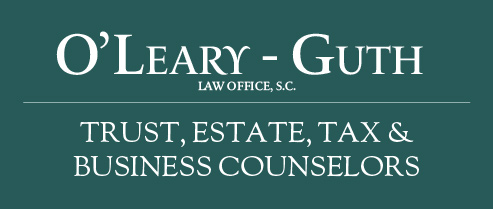What is an "Ultimate Taker"?
Posted: June 2, 2022
By Attorney T. Samuel Azinger
A frequently asked question that arises when discussing estate plans is what happens if the family and friends named in my estate plan all die before me?
Ultimate taker provisions direct who would receive your assets in such a "doomsday scenario." For example, if you and your named beneficiaries travel together and tragically die in the same accident, ultimate taker provisions would kick in.
There tend to be three common approaches when naming ultimate takers.
(1) Named Individuals. Sometimes there are specific people clients name as their ultimate takers, such as specific distant relatives or close friends. Most likely these people will not receive the estate or trust assets, but they are the people the client would want to receive the assets in a doomsday scenario.
For example, if a mom and dad name their children as their primary beneficiaries and their grandchildren as secondary beneficiaries, they expect those descendants to inherit their assets (and the more descendants mom and dad have, the more unlikely it is their ultimate taker provisions will be used). However, in the unlikely event there are no living descendants when mom and dad die, then the individuals they named as ultimate takers would inherit the assets.
(2) Charitable Organizations. If there are specific organizations that are important to you, but that you only would want to inherit if everyone else you named was deceased, the ultimate taker provisions can name those organizations.
(3) Heirs-at-Law. Another popular approach is to simply name "heirs-at-law" as ultimate takers. The term “heirs-at-law” are your next of kin at the time the ultimate taker provisions are needed.
State law determines the order in which next of kin inherit. First up are lineal descendants (children, grandchildren, etc.) Thereafter heirs-at-law (generally speaking) are in the following order (a) parents, (b) siblings, (c) nieces and nephews (and descendants of deceased nieces and nephews), (d) grandparents, (e) aunts and uncles, (f) cousins and descendants of deceased cousins, and so on.
While often overlooked, a properly drafted ultimate takers provision is an important component of a comprehensive estate plan. Please let me know if you would like to review and discuss the ultimate taker provisions in your estate plan. You can reach me by email at sazinger@olglawoffice.com.
Schedule an appointment with us today.
Meet with a knowledgeable attorney who specializes in your area of law.
1251 W. Glen Oaks Lane, Mequon, WI 53092
F: (262) 238-6999

